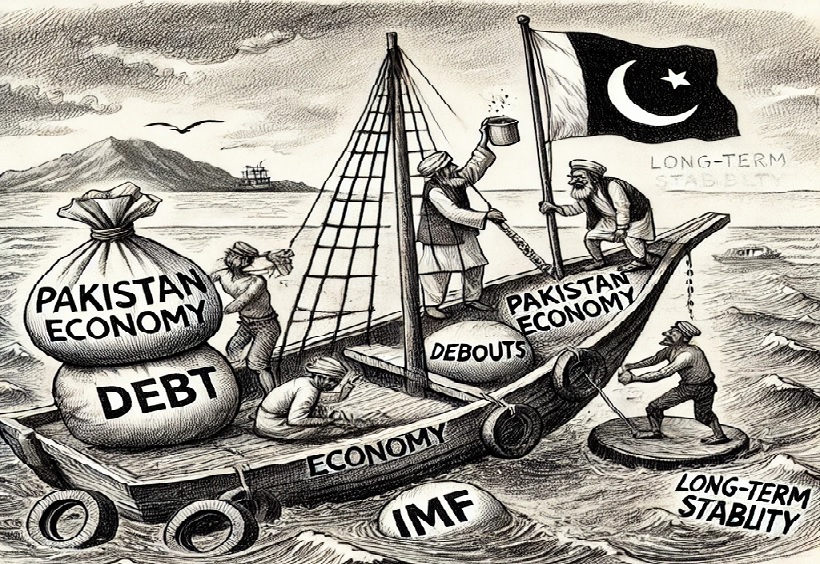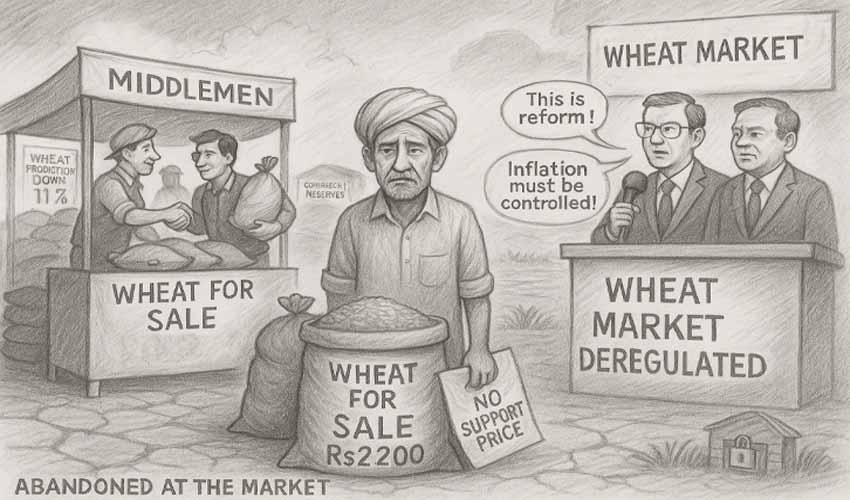Pakistan is striving to fix its economy. So far, it has been making the right moves. Inflation is down, the current account is in surplus, foreign reserves have improved, and the central bank has cut interest rates consistently over the past six months. However, these gains are not enough. The country is still on shaky ground.
Fitch Ratings, which upgraded Pakistan’s rating from 'CCC' to 'CCC+' in July last, has acknowledged the progress made so far. It noted that inflation, which was 24% last year, is now just over 2%. The State Bank has lowered interest rates to 12%, economic growth is expected at 3% this year, and the current account is in surplus by $1.2 billion. Moreover, exports and remittances are also helping. These are all positive signs, but before claiming successes prematurely, a reality check is necessary.
Pakistan is bound to make repayments to the tune of more than $22 billion this year, which is a huge amount. Almost $13 billion of this is from bilateral deposits. Although friendly countries have promised rollovers, promises are not solutions. Debt is piling up, and international lenders now demand reforms before lending more funds.
The government is left with little choices and would have to go for more unpopular decisions in the near future. It has kept a primary fiscal surplus, but tax collection is still weak. Provinces have passed laws to tax agricultural income, but implementation is delayed. This delay could drag the country back into the deep, turbulent sea.
Although reports point to the swelling government coffers, the foreign exchange are good to cover only three months of imports, which is still not enough. Consistent inflows are needed instead of just temporary boosts. The only lifeline available at the moment is the International Monetary Fund (IMF) funding. Any delay in it could shake the economy again and reverse the gains made so far.
Major reforms are needed for a smooth sail considering the fact that lenders are no longer willing to offer easy money. They want commitments. They want reforms. Every bailout comes with conditions. The country cannot afford to completely lose control over its financial decisions.
The government is trying to attract investment, and is in talks to sell part of copper and gold mines in Balochistan to Saudi investors. It has also signed a deal for deferred oil payments, which would bring some additional relief. However, Pakistan needs more than one-time deals.
Short-term relief is not long-term stability. Tough decisions must continue
No country can sustain itself solely on borrowed money. It must generate its own wealth to maintain sovereignty. In Pakistan’s case, the main problem is that it spends more than it earns. This precarious situation, exacerbated by a broken tax system, weak industry, and high energy costs, looms over our economy like a sword of Damocles, threatening to bring it crashing down.
Short-term relief is not long-term stability. Tough decisions must continue. The time for quick fixes is over. Pakistan cannot afford another crisis. The government must act now. If not, this cycle of debt and bailouts will never end.



























